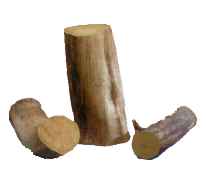Guide to Hopi Kachina (katsina) Dolls

Hopi, (literally translated) means a person who behaves in a polite or peaceful way. The Hopi are a communal farming people who reside on and near three mesas in northeastern Arizona. More than nine thousand Hopi live on a 1.5 million-acre reservation that encompasses a dozen villages.
The word kachina (kah-chee-nah) has long been used by outsiders to refer to any of the hundreds of spiritual beings central to Hopi religious life as well as to the dolls that depict them. However, according to the Hopi, katsina (kahts-ee-nah) is more correct and preferred. In English, the plural of kachina is kachinas, but in the Hopi language the plural of katsina is katsinam.
The first known kachina dolls were obtained by traders in 1857. From then on others were picked up sporadically until about the end of the 19th century. Little is known about these except that they were basically simple in style, with slightly detailed masks and simplified bodies.
The first known kachina dolls were obtained by traders in 1857. From then on others were picked up sporadically until about the end of the 19th century. Little is known about these except that they were basically simple in style, with slightly detailed masks and simplified bodies.
How Kachina dolls are made
Kachina doll making today involves both tradition and artistry. Kachina dolls are traditionally carved from the roots of cottonwood trees which once were abundant on and near the Hopi lands. The Hopi word for cottonwood root is paako, which means water wood, and the cotton-wood root's ability to seek and find abundant water mirrors the ability of the katsinam to do the same for the Hopi people.
